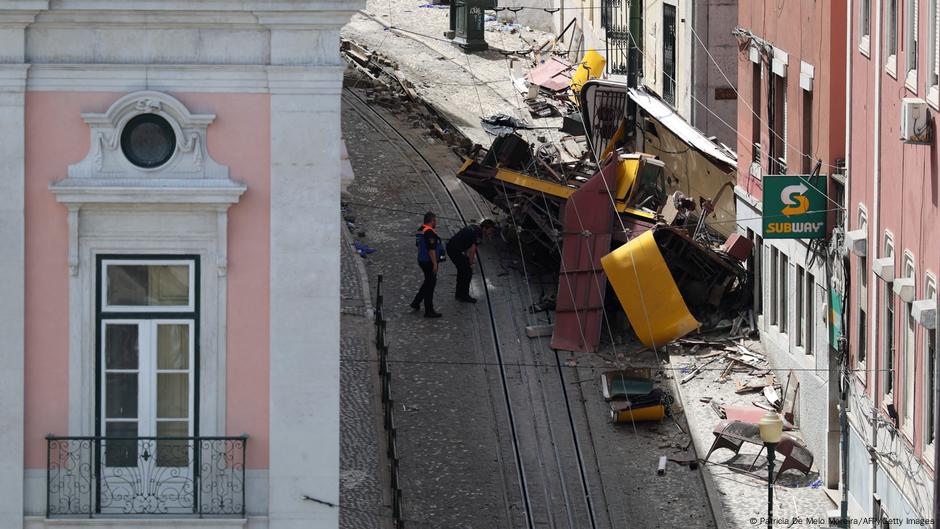Initial findings revealed that the funiculr accident occurred within 50 seconds. Officials called the deadly crash one of Lisbon's worst tragedies in recent memory.
Why it matters
- The tragic funicular accident has raised significant concerns regarding the safety protocols in place for public transportation systems in densely populated urban areas.
- This incident is among the deadliest in Lisbon's recent history, prompting calls for thorough investigations and potential reforms in transportation safety regulations.
- Local authorities are under pressure to provide answers and support to the families affected by this calamity, highlighting the need for better crisis response mechanisms.
In a shocking turn of events, Lisbon's public transport system was rocked by a catastrophic funicular accident that has been categorized as one of the most tragic events in the city's recent history. Preliminary investigations suggest that the incident transpired in a mere 50 seconds, catching both passengers and operators off guard. As officials sift through the details, the implications of this disaster reverberate through the local community and raise pressing questions about transportation safety protocols.
The unfortunate event occurred on a routine day, when the funicular, which is a popular mode of transport for both locals and tourists navigating the city's steep hills, malfunctioned. Eyewitness accounts describe a scene of chaos as the funicular, seemingly operating normally, suddenly went off course, leading to a catastrophic failure that resulted in multiple casualties. Emergency services rushed to the scene, where they found a tragic tableau that would leave lasting scars on the community.
Authorities have confirmed several fatalities, with additional individuals sustaining serious injuries. The local government has expressed its deepest condolences to the families affected and has pledged its commitment to investigating the circumstances surrounding the accident thoroughly. City officials are acutely aware that Lisbon, with its rich history and vibrant culture, must address this incident with the seriousness it deserves to prevent future tragedies.
Initial reports indicated that the funicular cable had become disconnected just moments before the crash, leading to a loss of control. Experts are now examining the engineering and mechanical integrity of the funicular system, alongside the regular maintenance checks that are supposed to ensure the safety of such public transport. The investigation aims to establish whether there were any lapses in protocol or mechanical failures that contributed to the accident.
The impact of this incident extends beyond the immediate tragedy, as it raises broader concerns about the safety of urban transit systems. Cities around the globe are increasingly relying on funiculars and similar transportation methods to manage steep terrains and urban congestion. This accident serves as a critical reminder of the importance of rigorous safety standards and regular maintenance checks to safeguard the lives of commuters.
Following the accident, public sentiment has turned towards anger and grief, with many questioning how such a tragedy could occur in a modern city. Advocacy groups are calling for immediate reforms that would enforce stricter safety regulations for all public transport systems, emphasizing the need for transparency and accountability in the wake of such incidents. The call for change is growing louder as residents demand assurances that their safety is paramount in the operation of public transport.
As the investigation unfolds, local authorities are also focusing on providing support to the victims' families. Emergency services have been mobilized to assist those affected, offering counseling and aid as the community grapples with the aftermath of the tragedy. The city is organizing memorial services to honor those who lost their lives, reinforcing the community's solidarity in this trying time.
This incident not only highlights the vulnerabilities inherent in urban transportation systems but also serves as a stark reminder of the potential dangers that commuters face daily. With the hopes of preventing similar tragedies in the future, stakeholders in the transportation sector must take heed of the lessons learned from this catastrophic event. The road to recovery for Lisbon will undoubtedly be long, but the emphasis on safety and community support will be crucial in the months ahead.











